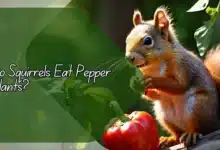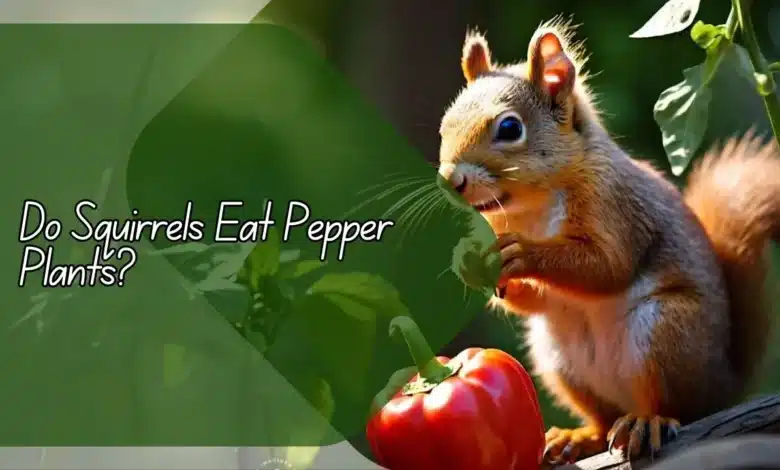
Do Squirrels Eat Pepper Plants? The Truth Revealed
A common concern for gardeners is whether squirrels eat pepper plants. In this article, we will study this question and provide you with the truth about squirrels and pepper plants.
We will explore why squirrels might be attracted to pepper plants, what damage they can cause, and how you can protect your plants from these furry pests. So, if you’re struggling with squirrels in your garden, keep reading to find out more!
Do squirrels eat pepper plants?
Yes, squirrels do eat pepper plants. Squirrels are omnivores, which means they eat a variety of foods, including fruits, vegetables, nuts, and small insects.
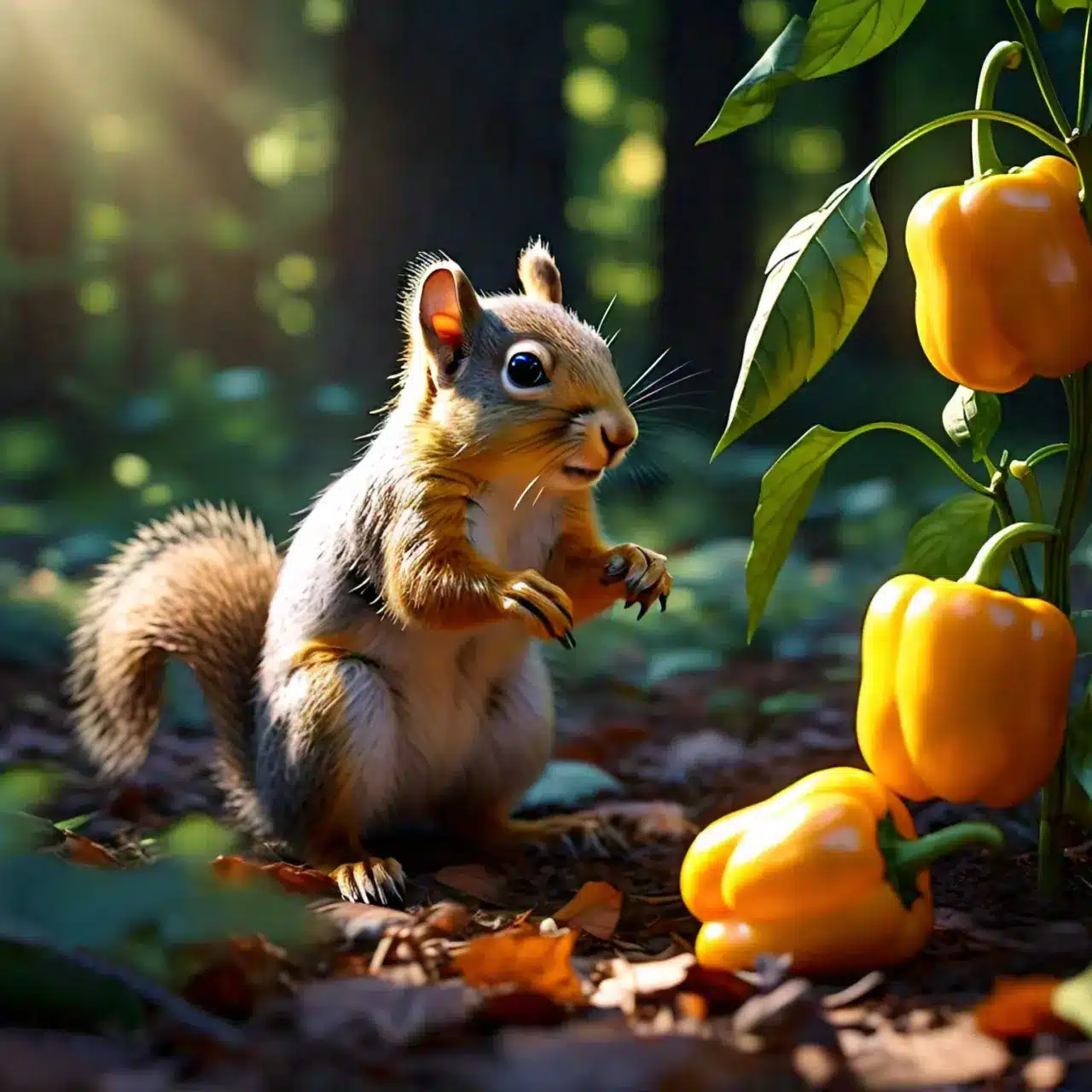
They have been known to eat peppers, especially when other food sources are scarce. Squirrels are attracted to the smell and taste of peppers, making them a target for these critters.
When squirrels discover a pepper plant in your garden, they may nibble on the leaves, fruits, and stems. This can cause damage to the plant and reduce your pepper harvest. If left unchecked, squirrels can decimate your pepper plants, leaving you with nothing to show for your hard work.
Why are squirrels attracted to pepper plants?
There are a few reasons why squirrels might be attracted to pepper plants.
First, peppers contain capsaicin, a chemical compound that gives them their heat. Some animals, like birds, are not affected by capsaicin and can safely eat peppers. However, squirrels are sensitive to this compound and may avoid eating spicy peppers.
Despite the heat, squirrels may still be attracted to pepper plants for their other nutrients and moisture content. Peppers are a good source of vitamins and minerals, making them a tasty treat for squirrels.
Additionally, the leaves and stems of pepper plants may provide shelter or nesting material for squirrels, further encouraging them to visit your garden.
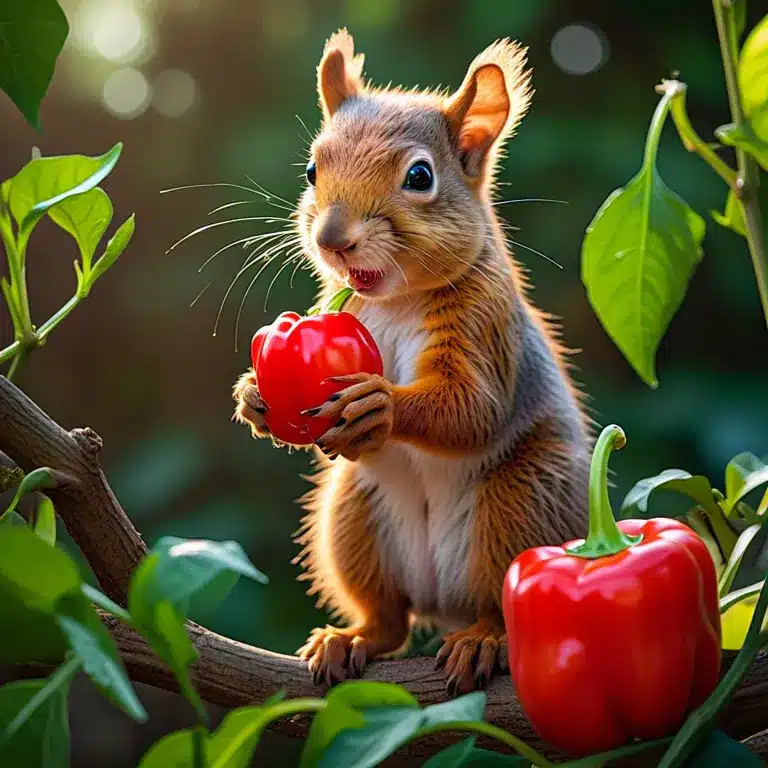
What damage can squirrels cause to pepper plants?
When squirrels feed on pepper plants, they can cause significant damage to the leaves, fruits, and stems. Squirrels may chew on the plant parts, leaving behind jagged edges or holes. This can weaken the plant and make it more susceptible to disease and pest infestations.
In addition to physical damage, squirrels may also spread diseases or pests to your pepper plants. Squirrels are known carriers of various diseases, including leptospirosis and salmonellosis, which can harm both plants and humans.
By feeding on your pepper plants, squirrels can introduce these pathogens to your garden, putting your plants at risk.
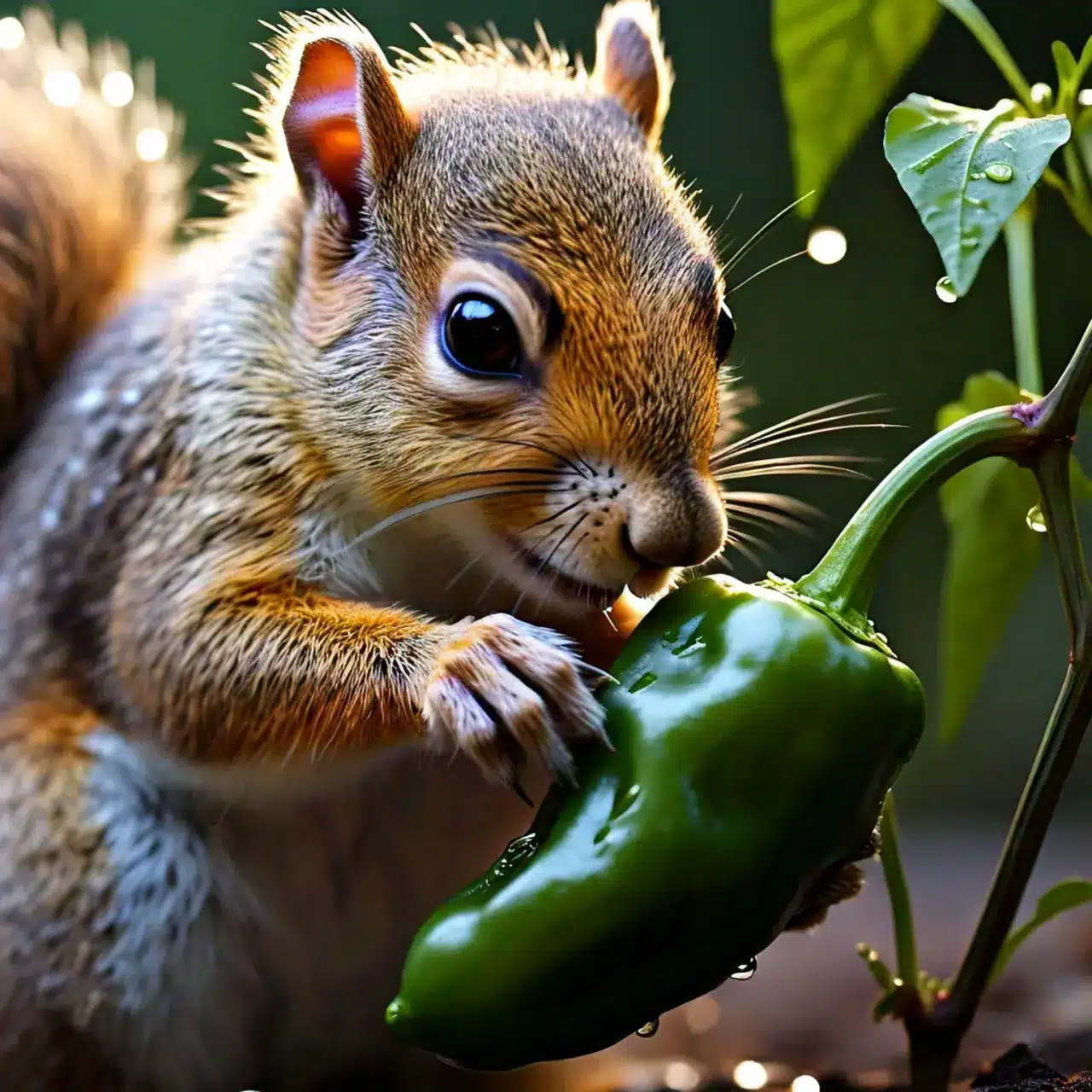
How can you protect your pepper plants from squirrels?
There are several strategies you can use to protect your pepper plants from squirrels. One option is to create physical barriers around your plants, such as chicken wire or mesh fencing. These barriers can prevent squirrels from accessing your plants and causing damage.
Another effective method is to use repellents, such as hot pepper spray or predator urine. These products create a strong smell or taste that deters squirrels from approaching your pepper plants. You can apply these repellents periodically to keep squirrels at bay.
Finally, you can try planting companion plants that squirrels dislike, such as garlic, onions, or marigolds. These plants can act as a natural deterrent to squirrels and help protect your pepper plants from harm.
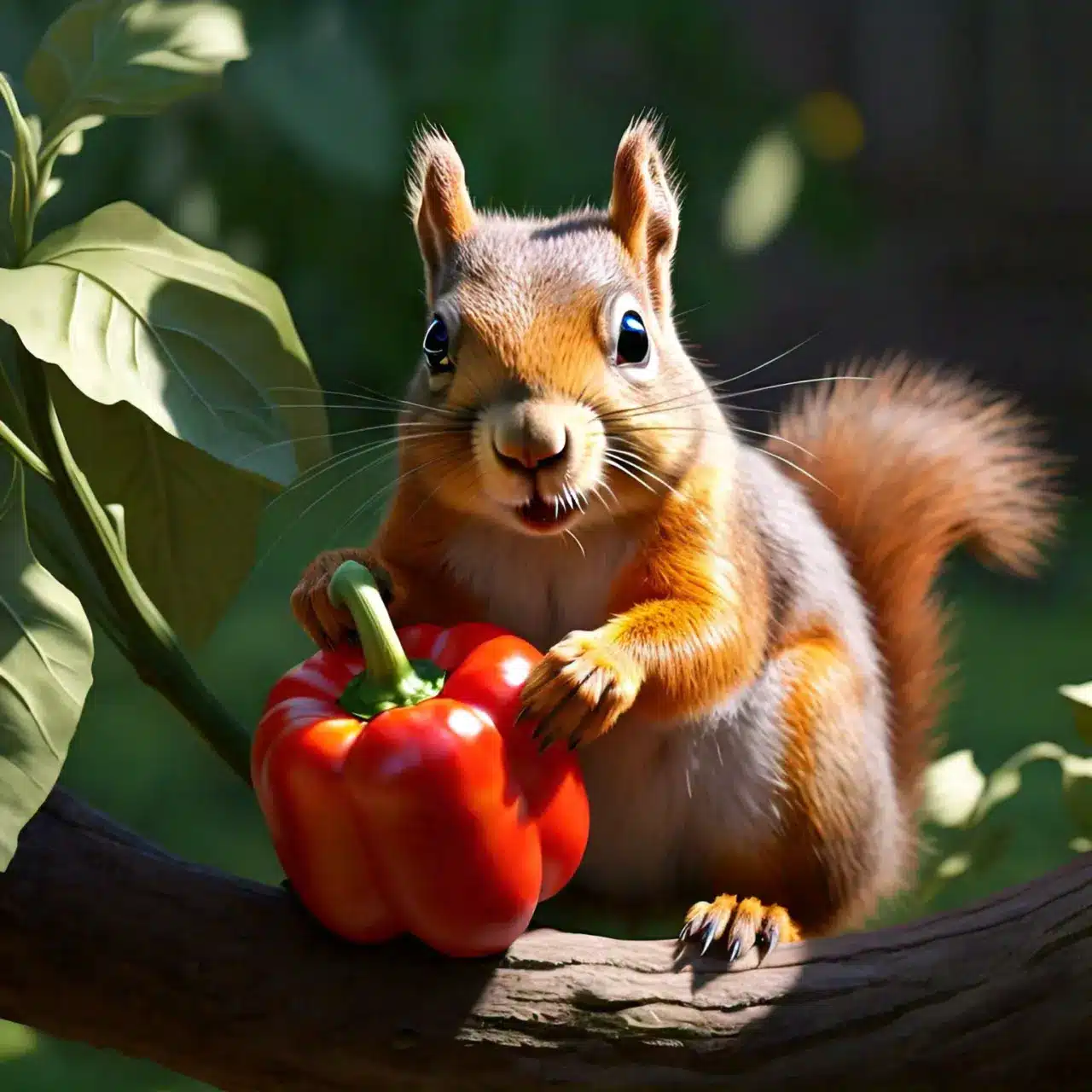
Conclusion
In conclusion, squirrels do eat pepper plants and can cause damage to your garden if left unchecked. By understanding why squirrels are attracted to pepper plants and how they can harm your crops, you can take steps to protect your garden from these furry pests.
Implementing physical barriers, using repellents, and planting companion plants are all effective methods for keeping squirrels away from your pepper plants and ensuring a bountiful harvest.
FAQ
Do squirrels only eat pepper plants?
No, squirrels are omnivores and will eat a variety of foods, including fruits, vegetables, nuts, and insects. While they may be attracted to pepper plants, squirrels will also consume other types of vegetation in your garden.
Are there other pests that can damage pepper plants?
Yes, in addition to squirrels, pepper plants may be targeted by other pests, such as aphids, caterpillars, and beetles. It’s important to monitor your plants regularly and take action against any potential threats to ensure a healthy harvest.
Can squirrels be beneficial in a garden?
While squirrels can pose a threat to your plants, they can also play a role in ecosystem balance by dispersing seeds and controlling insect populations. Finding a balance between allowing squirrels to coexist in your garden and protecting your plants is key to a successful harvest.
What other methods can I use to deter squirrels from my garden?
In addition to physical barriers, repellents, and companion plants, you can also try using noise deterrents, such as wind chimes or ultrasonic devices. These methods can create a hostile environment for squirrels and discourage them from entering your garden.
How can I attract beneficial wildlife to my garden while deterring squirrels?
To attract pollinators and beneficial predators to your garden, consider planting native flowers, creating habitat structures, and providing food sources, such as bird feeders or water features. By creating a wildlife-friendly environment, you can encourage a diverse ecosystem in your garden while keeping squirrels at bay.
